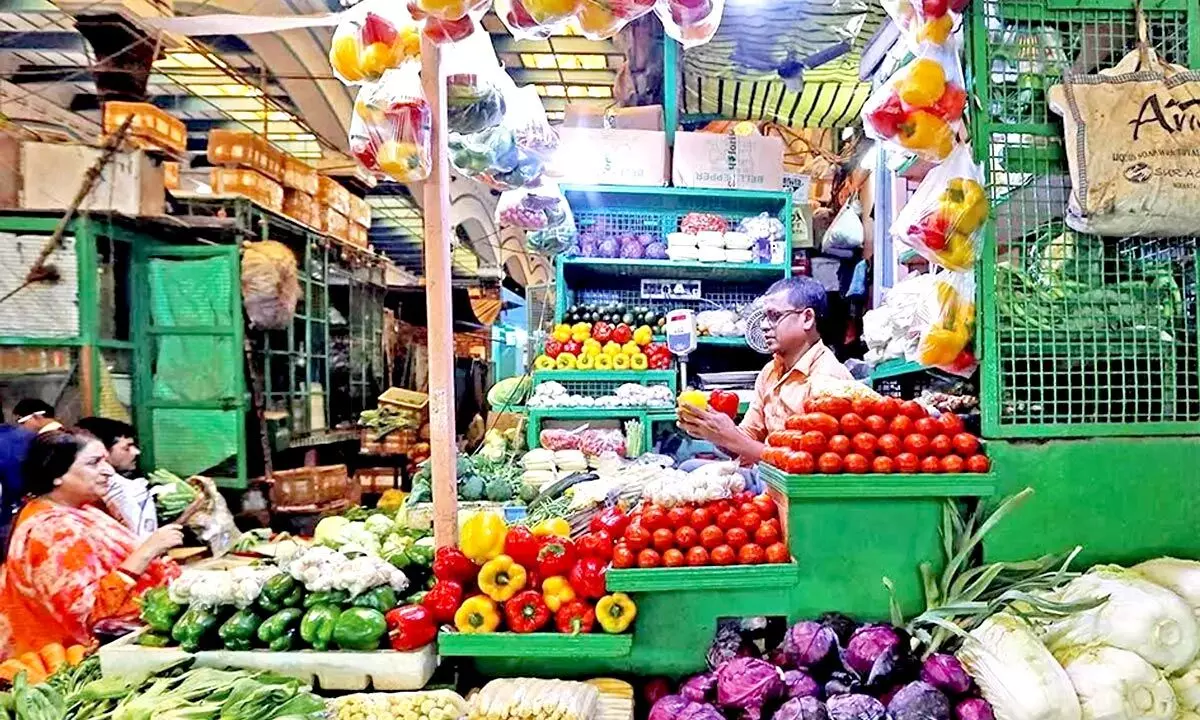WPI inflation in negative for fifth month in a row at (-) 0.52% in Aug
The WPI inflation rose sequentially from the previous month on account of firming prices of food items, especially vegetables, onion and pulses
image for illustrative purpose

New Delhi: Wholesale price inflation remained in negative for the fifth straight month in August at (-) 0.52 per cent, though it rose sequentially from the previous month on account of firming prices of food items, especially vegetables, onion and pulses. The wholesale price index (WPI) based inflation rate has been in the negative since April and was (-)1.36 per cent in July. In August last year, WPI inflation was 12.48 per cent.
According to economists, fading base effects and elevated food inflation led to a (-)0.52 per cent WPI in August, which came in higher than July numbers. Inflation in food articles remained in double digit for the second straight month at 10.60 per cent in August, lower than 14.25 per cent in July. Wholesale inflation in vegetables was 48.69 per cent in August, against 62.12 per cent in July. In pulses, inflation was 10.45 per cent, while in onion it skyrocketed to 31.42 per cent in August.
"Within food, prices of vegetables, which surged in July, moderated sequentially in August, but year-on-year, inflation remains high. Additionally, a small sequential increase in prices of manufactured products (which have the largest weight in WPI) also contributed to the slower headline deflation," Barclays MD & Head of EM Asia Economics Rahul Bajoria said.
Fuel and power basket inflation was at (-)6.03 per cent in August, against (-) 12.79 per cent in July. In manufactured products, inflation rate was (-)2.37 per cent, as against (-)2.51 per cent in July. "The negative rate of inflation in August 2023 is primarily due to fall in prices of mineral oils, basic metals, chemical & chemical products, textiles and food products as compared to the corresponding month of previous year,” the commerce and industry ministry said on Thursday.
Acuité Ratings & Research Chief Economist Suman Chowdhury said "we expect WPI inflation to be in the positive territory over the next few months, given healthy industrial and consumer demand and the backdrop of increasing prices of crude oil, cereals and pulses." "This is set to hold CPI inflation in the range of 5.5-6.5 per cent over the next two quarters and not allow it to come down sharply. RBI MPC will have limited option but to wait and watch the price scenario till the end of the current fiscal," Chowdhury said.
The softer pace of decline in WPI in August follows the larger than expected moderation in CPI inflation, data for which was released earlier this week. Retail inflation data for August came in at 6.83 per cent in August, lower than 7.44 per cent in July. "We expect CPI inflation to moderate further in September, supported by reversal in vegetable price shock and price cuts for LPG... Currently there is limited pressure on consumer prices, resulting in broadly stable CPI core inflation. This is likely to comfort the RBI; however, we expect it to remain on hold for longer, as it monitors risks to inflation from generalisation of food price pressures and El Niño," Bajoria said.
Fitch Ratings in its Global Economic Outlook also raised 2023-end retail or CPI inflation projection to 5.5 per cent, from its previous forecast of 5 per cent. It, however, maintained RBI's benchmark interest rate forecast at 6.5 per cent for end 2023. The RBI expects annual CPI inflation to moderate in coming months given the short-term nature of vegetable price shocks. Nevertheless, the threat of El Niño means that inflation could exceed our forecasts, although the impact on consumers and the economy is likely to be temporary, Fitch said.

